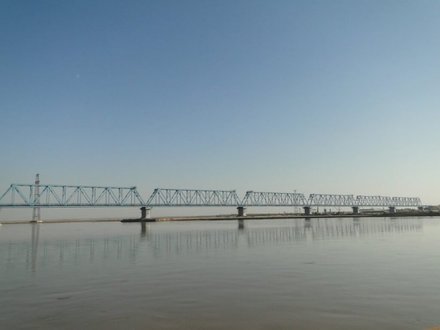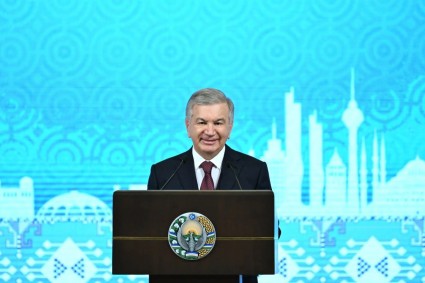Before 2024, Kazakhstan plans to amend the agreement with Kyrgyzstan and Uzbekistan on the use of the resources of Syrdarya basin, the Minister of Water Resources Shavkat Khamraev told Kun.uz on how these plans mean and about its possible consequences for Uzbekistan.
- Kazakhstan plans to amend the agreement with Kyrgyzstan and Uzbekistan. What does this mean and how can this possibly impact Uzbekistan?
We have a saying among our people: do not destroy the old building without building a new one. In Central Asia, there are many agreements on water resources that must be followed. Some of them need improvement.
Kazakhstan is a country located in the lower reaches of the Syr Darya. Because of this, the lack of water for them is more noticeable. Since the water issue becomes more and more complicated every year, they think about their own interests. This is totally understandible.
The water agreement you mentioned was signed in 1998. But the agreement then was enforced for 2-3 years, and then stopped altogether. Year after year, its terms were violated by the parties. This agreement may be suspended if approved by the authorities of all three countries. Kazakhstan wants to improve and use this agreement. But there are some questions that all three countries should follow.
We conserve water by providing electricity to Kyrgyzstan in winter. And in the summer we return electricity. This is also one of the clauses of the contract. We have been discussing some issues with Kazakhstan for 3-4 years already. If there is an agreement, it will be useful for the Uzbek side, and the interests of all parties will be taken into account.
- No matter how much we talk about amending the agreement, simply put, Kazakhstan’s objective today is to get more water for themselves, this is quite clear. So how much water do the Kazakhs want to take and what is the volume that they need is fraught with for us?
- There are separate schemes for the Amudarya and Syrdarya, approved by the Ministry of Water Resources under the Soviet Union. After the collapse of the Union, the independent states signed an agreement to comply with the agreements in 1992. These limits are still in effect. Sometimes more water enters Kazakhstan. We have Aydarkul and other similar problems. Everyone "pulls the blanket over to himself", so it becomes difficult to coordinate with neighbors. We are also striving for the interests of Uzbekistan. But at the same time, we take into account the interests of neighboring countries. I openly say in the international dialogue that we must first of all take care of Uzbekistan’s interests, but also take into account their interests.
- Yes, no matter how much we talk about the canals that our neighbors are digging, or the agreements that are going to amend, but there is a fact that we are wasting the water we have, a very large amount of water. Today, 40-45% of our water is lost from rivers and canals before it reaches cultivated land. In desert areas, the numbers are much larger and scarier.
Focusing our efforts on concreting watercourses and thereby reducing water loss will be of great benefit. Why are we not moving in this area?
- We have adopted a concept until 2030 and a strategy for 3 years. We are actively working in this direction and are reviewing programs with the relevant departments. Water loss is a known problem. But we didn't stop. Large canals are being concreted, pumping stations are being repaired. Now 200-300 kilometers of canals are concreted in 1 year.
- Perhaps there is not enough funds from the state?
- There is such a problem. If we were given 4 times more money than now, we would have completed our 10-year task in 2-2.5 years. But we understand that money is needed for other areas as well. Funds are allocated to us as far as possible. In the coming years, foreign investment will be attracted, as the World Bank and the Asian Development Bank also say.
Some say: Uzbekistan's foreign debt is increasing. However, the money contributed from the budget for concreting canals and repairing pumping stations will not be enough. We are given soft international loans. Now we want to launch the second stage of canal concreting in Khorezm. In Surkhandarya, pumping stations were removed, providing water supply by gravity, channels were concreted. $140 million worth of major projects were also implemented in the Ferghana Valley. In addition, concreting of canals in Karakalpakstan is underway. But this question is rightly criticized, and I accept it. The total length of our irrigation networks is 180,000 km. Of these, 27,000 km are large canals, and if we concrete 1.5-2,000 km a year, we will reach our goal faster. Now it is being concreted for 300-400 km.















